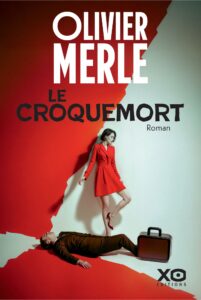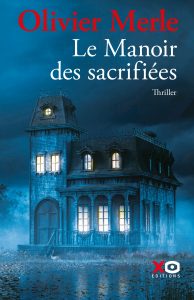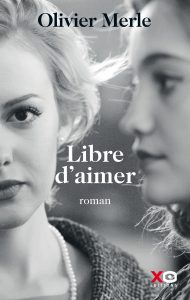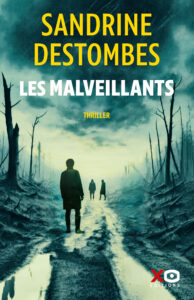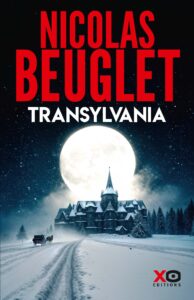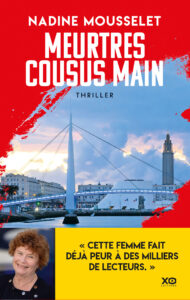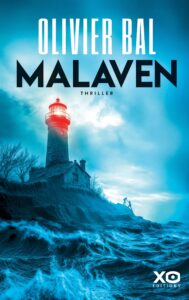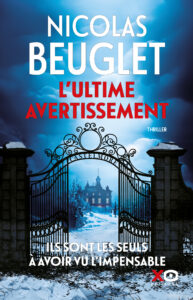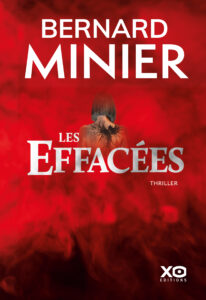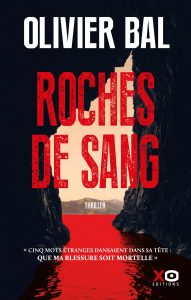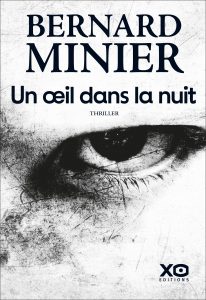The guts of evil
« Are you proud of what you’ve done?
The hour of reckoning has come! »
The anonymous letter Inspector Grimm receives is an accusation and a threat. Grimm doesn’t understand the accusation. What did he do? When?
The threat on the other hand, is explicit. His life is in danger. You don’t write that kind of letter innocently, but as a prelude to murder.
While investigating the notorious Drajic, a Serbian pimp, and his sidekick The Chinaman, Grimm uncovers the terrifying and elusive darkness lurking in their shadow, and the threat it carries. This shadow draws him back into the distant past, plunging him into the nightmare of his childhood Grimm thought was safely behind him.
And yes, he is guilty of the act his mysterious accuser accuses him of. From this point onward, the inevitable faceoff becomes Hubert Grimm’s ultimate combat for nothing less than his very existence. Because the hatred that separates these two human beings is so powerful, so ingrained, it can only fade if one of the two is killed.
The story of a unexpected and horrifying vengeance
A terrifying investigation in which the policeman becomes the prey
Author's interview
In The Guts of Evil, Commandant Hubert Grimm of the Rennes judiciary police returns to center stage. A protagonist who is as rich as he is complex.
Grimm has just been transferred to Rennes for disciplinary reasons. His skill as an investigator, his flair and his energy just barely make up for certain psychological weaknesses, including his pessimism, his solitude, and his difficulty expressing his emotions. He’s cerebral and tortured. He is clearly not adapted to the world around him, but he does not lack humanity.
Every criminal case he confronts tortures him and he zeroes in on the evidence like a person obsessed, turning it around in all directions, entirely consumed with solving the crime. It’s the one thing that staves off his depression–a tendency he’s had ever since childhood. In this third opus, Merle lifts the veil on Grimm’s personal tragedy. The drama he’s lived is an absolute horror, and although the scars will never heal completely, his decisive encounter with his father ends thirty years of silence and denial.
The investigation directly implicates Grimm, who finds himself one of the victims…
Indeed, and it’s the inversion of the usual formula that gives this novel its suspense and originality. Grimm goes from hunter to prey. Moreover, he is unaware of who’s hunting him and why. To understand and solve the crime, he needs to investigate himself, a fact that worries and destabilizes him; he is aware of the high price he’ll have to pay for what he uncovers.
You also uncover a story of corruption in the midst of the police force. Have you always been interested in the figure of the corrupt cop?
It’s a classic figure in novels and detective films. It allows you to introduce a mole in the midst of the police force, which, on the inside, slows down or messes up the investigation. In this sense, this type of character allows the intrigue to take interesting twists. A novelist would be mad to let that chance go. As for Grimm, with his disdain for authority, the confrontation with the instigator is sure to let the sparks fly.
The murder of women, and more generally, violence against women are a central theme of the novel. Why is that?
The first feminist revolution of the 1970s proved ineffective and insufficient, despite what society would have us believe. The Me Too movement and the Weinstein affair in 2017 unsettled us and exposed the stubborn archaic nature of the patriarchal system that we’d hoped had faded. In particular, the monetization by the media of the monthly number of women killed is flat-out terrifying. These femicides are the ultimate proof of the daily violence women face, and this has proven to be one of the cancers affecting our society.
When we look at your journey, we discover that you are at once a geologist, a university professor and a novelist. Where does this taste for literature come from?
When I was young, I would write short texts and poems even. Then, the professional world swallowed me up, and I became an academic researcher with the Centre National de la Recherche Scientifique (CNRS) and a university professor. I let my writing go, but I regularly felt the urge to write, which was frustrating. I had to wait till I was almost fifty to get back to it, first in YA literature. I suppose the shadow my father cast (Robert Merle, Prix Goncourt, 1949) was too intimidating for me to dare step into my own limelight. Only after he died did I begin to publish regularly, with my first novel in 2019 and a thriller in 2021. It was a new path that, for a long time, I was afraid to take, though I should have.
lire toute l’interview

